The terms ‘getaway’ or ‘escape’ have never been more appealing. After spending much of the past four months locked in their homes, patiently waiting for Covid-19 to pass, middle-class Indians finally decided it was time to leave their concrete confines and go somewhere, anywhere, that isn’t home.
But travel at your own risk never sounded more true. Even if you get over the fear of the virus, there is always the maze-like bureaucracy that you have to overcome at every step. Preparing for a trip isn’t just about making bookings and packing your suitcase anymore. Include chasing doctors for tests and certificates, reading up dozens of state and district directives, filling a million forms and self-declare, self-declare, and being prepared to self-declare all along the way. What will slow your SUV down on a road trip are not just potholes but innumerable checkpoints that ask you the same set of questions again and again.
The world, however, is still getting ready for the pandemic-weary tourists. Tourism-dependent states such as Himachal Pradesh and Uttarakhand, for instance, have opened their gates to tourists (or Delhiites wanting to visit their holiday homes). But confusing online directives, a laborious process to procure travel passes, and requirements for Covid-negative certificates serve as a deterrent.
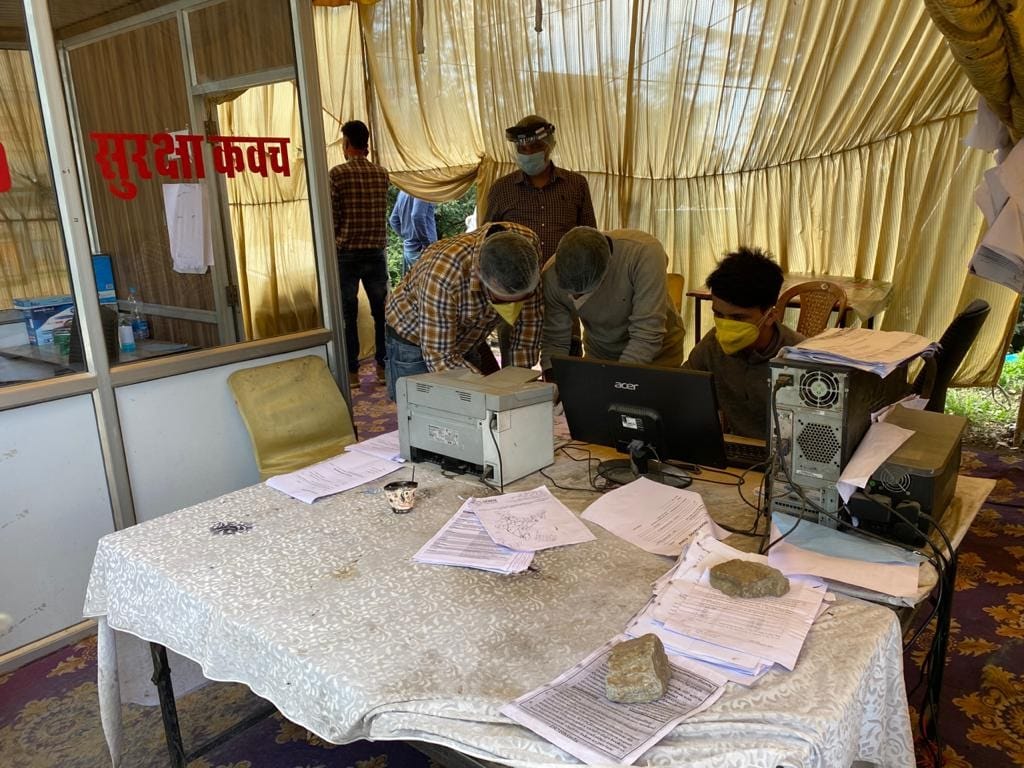
Delhi/Goa-based curator Sitara Chowfla describes the process of reaching her scenic destination — Jilling Terraces, a cosy homestay an hour away from Nainital — as tedious and irritating. Her travel group, which included a two-year-old baby, tried to be as safe as possible during the journey — no stops en route, keeping the protective gear on while showing their e-pass at checkpoints. But still they got repeatedly stuck at checkpoints where verification processes were manual and time-consuming.
“At one stop, we were made to write down our names in seven different books, with one woman checking each. During the registration process near Haldwani, which lasted 1.5 hours, we were shamed by the officials for wanting to holiday. We were then passed grubby chits of paper with our first names on them, which impressively enough, were checked at a later point just a few kilometres away,” Chowfla said.
She and her friends decided to opt for a seven-day stay, which helped them bypass the two choices they would have needed to pick from if their stay had been for a shorter duration — a two-week quarantine facility, or getting a Covid-negative certificate from a test conducted 72 hours prior to arriving at the travel destination. The certificate, Chowfla described, is like “a get-out-of-jail-free card that makes the process much smoother”.
But getting yourself tested for Covid is easier said than done, especially in cities like New Delhi where you still need a doctor’s prescription. Unless, of course, you manage to pull some strings at a private lab, which is what Srishti Arora, a PhD student studying in the UK, and her group of friends visiting Uttarakhand’s Almora, did.
But managing to get a test done is only clearing the first step of the struggle. After receiving your result, you need to apply for an e-pass, procure it in time and then complete your journey, all within 72 hours — a time frame that Uttarakhand and Himachal Pradesh officials closely check.
But Chowfla maintains that jumping through all these hoops was well worth it. “When we got there, it was magic, heaven on earth. We were so remote that we forgot coronavirus existed,” she says.
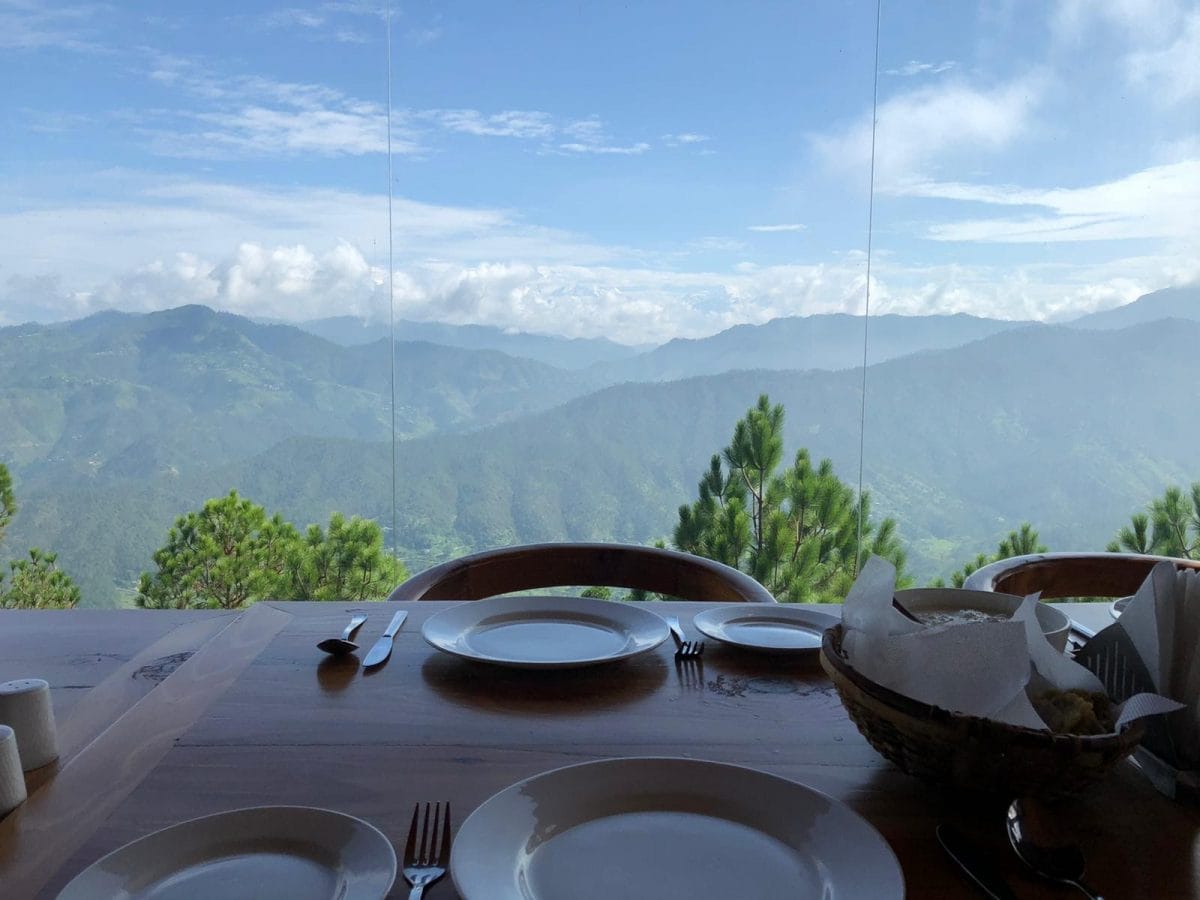
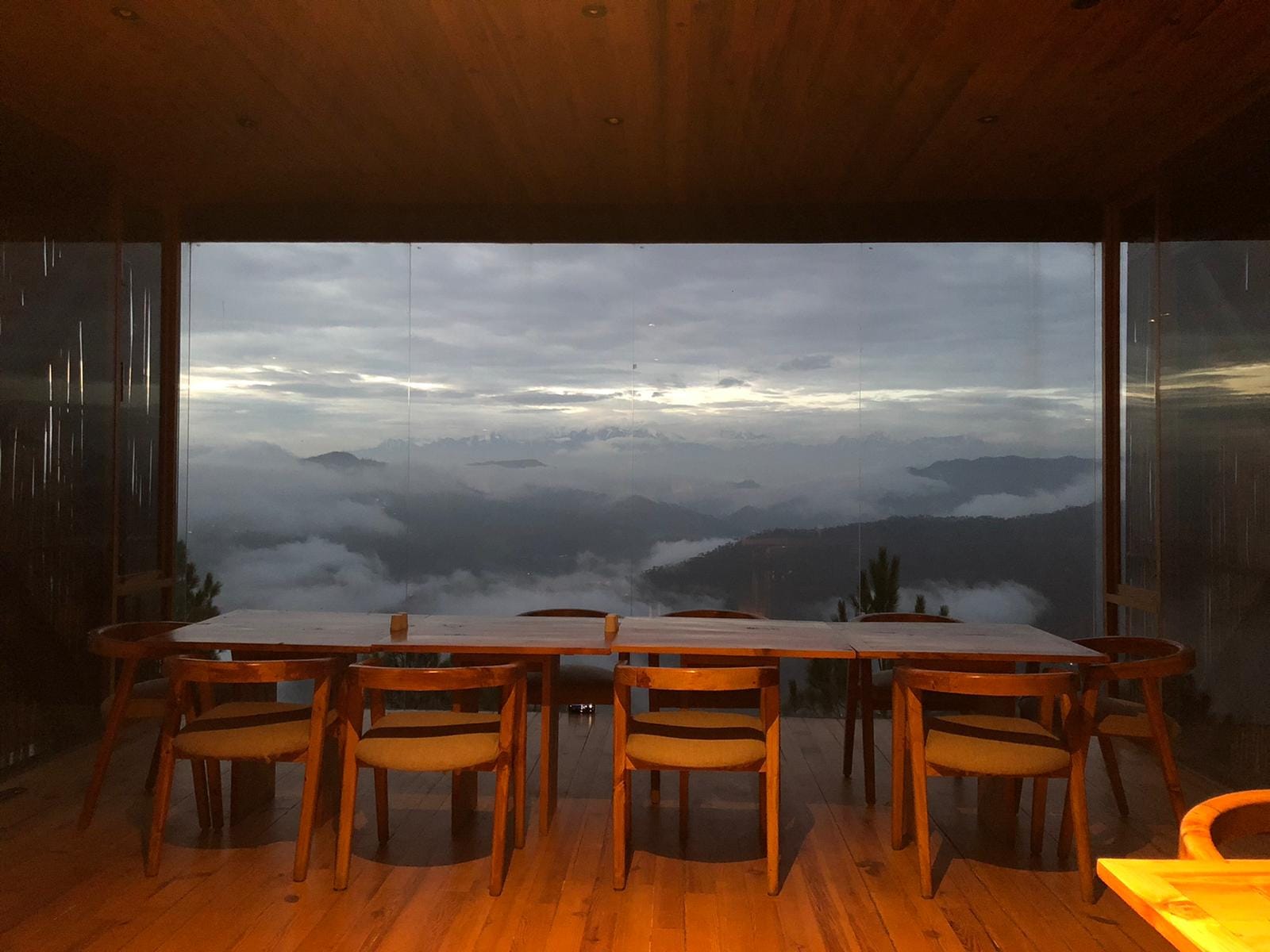
Arora says her trip was ‘difficult’, in part due to local residents in Uttarakhand being apprehensive and suspicious of her group. “Even during a 5-km trek uphill, our guide made us wear masks so that villagers would not object. When we had completed almost 90 per cent of the trek, one woman blocked our path and almost did not let us go through. It seemed like locals had not been informed that the state had opened up (for) tourism,” she said.
But the experience of being out after months, and being able to spend “quality time“ with her boyfriend and friends during their stay at boutique resort ‘The Kumaon’ overshadowed all the hiccups.
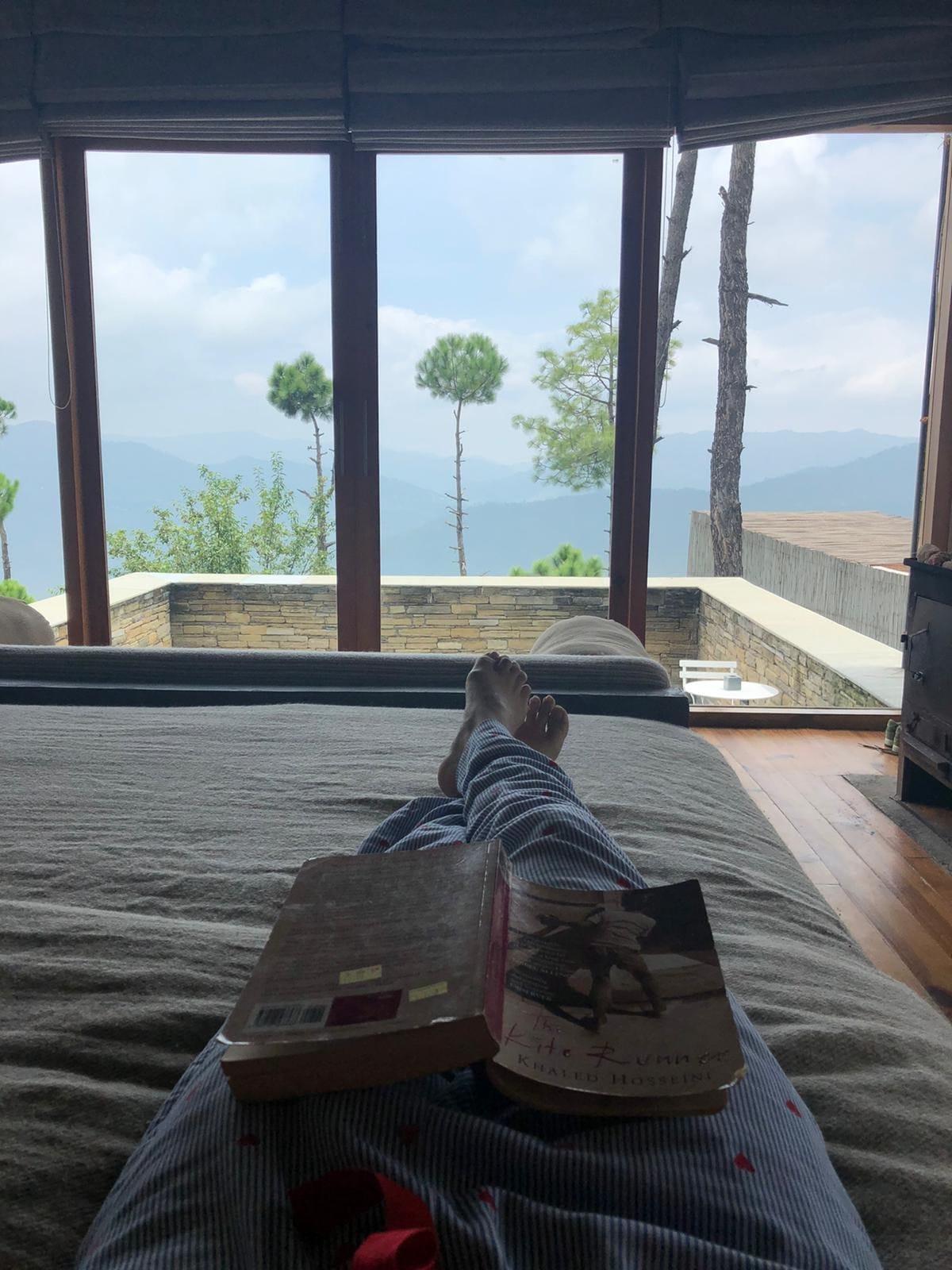
Also read: Your country’s Covid management will decide how many tourists you will get
Travel hacks
When the Covid-19 outbreak started gaining momentum in March, millennials infamously joked that they were “here to have a good time, not a long time” and rushed to book cheap tickets, while paranoia about the virus continued to spread. But they were in for a rude shock as soon lockdowns were declared world over. Now, four months in, things are not back to normal, but there definitely seem to be some hacks that are helping people plan their vacations in the Covid-19 era.
One is, of course, to find destinations or states that don’t have many rules or restrictions, like Rajasthan. Delhi-based lawyer Samudra Sarangi took a few friends to celebrate his birthday over a weekend to Ranthambore and received the best gift — he saw a tiger up close. Twice.
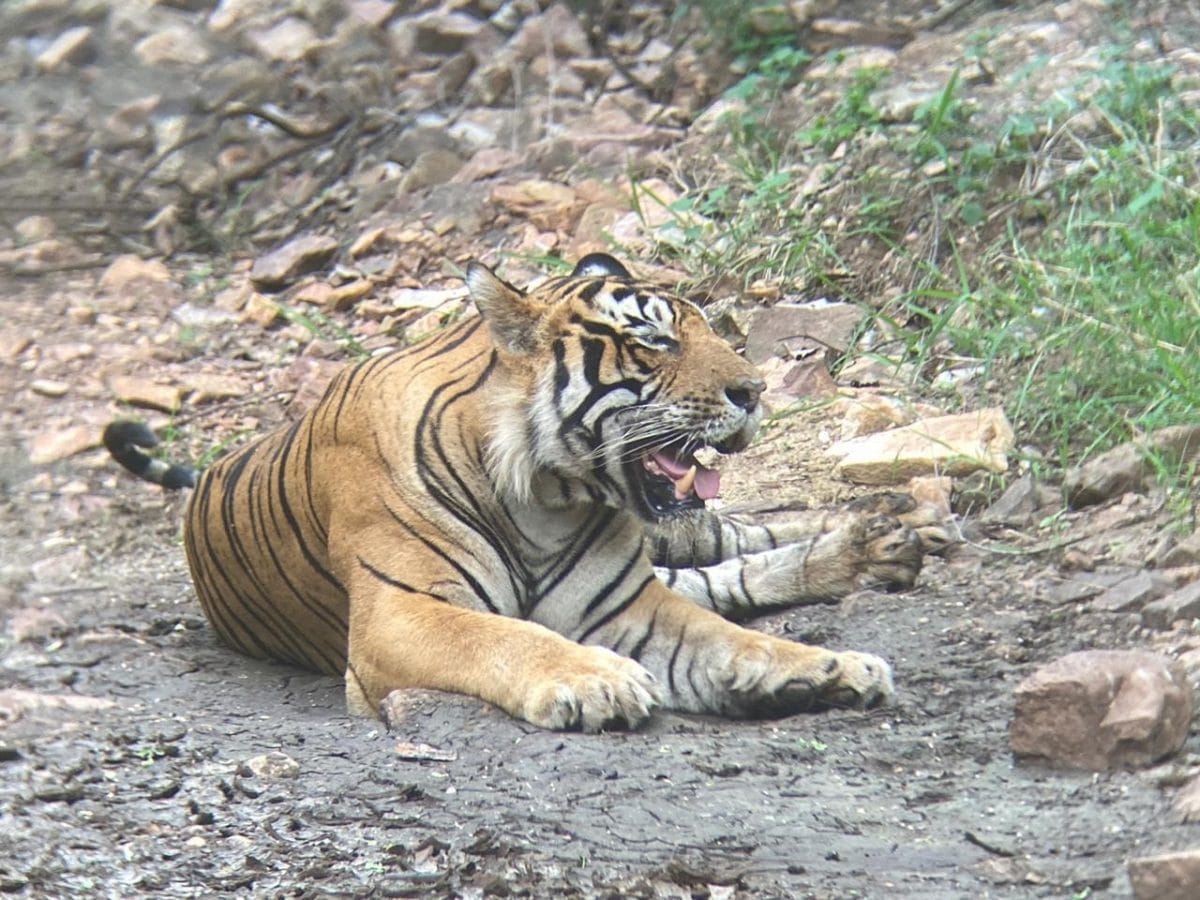
Another practical option is to ditch public transport, and stick to private cars. The experts confirm this. “Road-trips or self-drive holidays is the new trend,” says Vipul Prakash, Chief Operating Officer of MakeMyTrip and Ibibo. Mind you, for most tourists, these are dhaba-free, pack-your-own-dabba kind of road trips.
The travel platforms have seen a spike in interest for destinations within 300 km from the big metros, especially Himachal Pradesh, Uttarakhand, Rajasthan, and Goa. Keeping up with this surge, they are providing ground transport such as sanitised private cabs along with e-pass assistance services.
Also read: Stopping traffic, discipline, ‘braking’ Covid spread — why states are bringing back lockdowns
Where to stay
Well-maintained, thoroughly sanitised spaces are now a top priority for travellers, which could have consequences for home-rental service providers such as Airbnb.
“We spent 12 years building (the) Airbnb business and lost almost all of it in a matter of four to six weeks,” Airbnb CEO and co-founder Brian Chesky told CNBC in June.
The primary issue with Airbnbs is that there is no guarantee that the partners — homeowners offering their places on rent — will maintain the necessary standard of hygiene and provide services as per the Covid-safety norms. Mumbai-based corporate lawyer Aparna Raturi says that Airbnb cannot be held accountable as a service provider the way a hotel can be. The Airbnb model has always been criticised for this — as well as for the fact that it has led to gentrification of areas, driven up rents, and ruined local economies.
“You can’t trust Airbnbs right now, many may not even have infrastructure to sanitise the spaces like hotels do.”
Raturi, who has been quarantining in her family home in Dehradun with her parents and her fiancé, realised there was light at the end of the Covid tunnel and decided to just tie the knot with a court wedding.
But after the wedding in June, she couldn’t enjoy any privacy in her joint family home of 7-8 people. When hotels in her vicinity began to open up in the first week of July, the couple decided to spend their honeymoon an hour away in Mussoorie at The Savoy.
Trusting that the ITC hotel would maintain hygiene protocols, with staff all geared with PPEs and face shields, they were able to relax, but had to sign a self-declaration form that they were Covid free and would not go outside the hotel premises. “It was just nice to be alone. We did nothing, but just ate nice food, drank and watched TV.” There were no breakfast buffets — the thing most people die for at hotels — and meals were delivered outside the rooms along with disposable cutlery, but Raturi was just happy to get a break.
Sarangi, too, chose a swanky Oberoi property for his Ranthambore visit, and was put to ease by their socially-distanced dining-room tables and abundant availability of masks and sanitisers. The property had 20 out of 22 rooms booked during the weekend of his visit, which gives an indication of how desperate people are for a vacation, and how they don’t mind spending a pretty penny for it. Most of these hotels were not offering any special Covid discounts, apart from the conventional summer deal of three nights at the price of two.
Neemrana Fort-Palace, the sprawling heritage hotel located along the Delhi-Jaipur highway, has also been seeing a lot of traffic, especially on the weekends, the booking manager told me.
“We are not taking bookings beyond 40-50 per cent of the hotel’s capacity. All rooms have separate AC units, no central air conditioning. So guests need not worry”. The primary concern most guests have, according to him, is regarding the food. The hotel’s response is to serve only fresh meals made from locally sourced ingredients — which mean limited menus and no sumptuous buffets — and would either send meals in disposable containers to guests’ rooms or serve them in open areas outside.
But Bengaluru-based Suman Sukumar, founder of the alternate travel company Knowhere, believes that any amount of assurance, even from a reputed hotel or vetted homestay, is not enough.
“Nothing is foolproof, no matter how (much) places say that things are sanitised and precautions are taken. There’s just no telling,” he says. In Karnataka, you can travel within the state without a Covid test, but there is still a lot of fear. “Every other week a new lockdown is announced. Shutting down and opening a hospitality business is very expensive and time-consuming, so many owners have just decided to be shut for now,” says Sukumar.
In this travel-at-your-own-risk situation, going to a friend’s place is the most preferred option for many. Taruni, a Bengaluru-based consultant, has taken not one but two trips this past month, both visits to her friends’ farmhouses in Belgaum and Coorg.
Also read: Why some ‘travel bubbles’ might remain thought bubbles until the pandemic passes
Workations
With work from home, or WFH, becoming a norm during Covid, the lines between work and life have never been more blurred. But many are now viewing remote working as a positive opportunity.
London-based financial consultant Hansika* has planned a three-week trip to Croatia with her partner. They have decided to work through the week, and ‘vacation’ over the weekends. These extended work-cum-pleasure trips are becoming increasingly popular, especially in Europe where ‘travel bubbles’ — limited openings of international borders in countries where Covid transmission seems to be under control — are starting to spring up. “I have friends who are in Italy or are travelling to Spain, Greece, etc. soon. People are less worried as case numbers have gone down,” she said.
Vipul Prakash of MakeMyTrip and Ibibo sees the trend emerging in India as well. “Young professionals, who have been working from home for the last few months and might continue to do so in the near future, are willing to shift their workstations, together with their friends or family, either to the hills or to a sea-side villa or apartment.”
Raturi tells me that she has been inundated with elaborate plans by friends who want to go to Goa or Shimla, and book a house for a month where they can both chill and work.
Also read: Short trip, virus screening hotel, social distance on beach – this is the future of holidays
Future of travel
“Travel, as we know it, is over,” Airbnb’s Brian Chesky announced last month, adding that travelling is not dead per se, but “the travel we knew is over, and it’s never coming back”.
MakeMyTrip is more optimistic, because travellers, according to Prakash, are already looking at flight options for international vacations for summer 2021, and the company has received a good response to its new ‘Book Now, Pay Later’ flexible scheme.
But Sukumar of Knowhere Travel predicts that slow and responsible eco-tourism is the future, and that there will be a shift towards more remote locations. “People want to isolate themselves. Urban life is hectic, stressful and people’s only mode of escape is travel — not temporary escapes like going to a bar or a club.”
The exclusive club of digital nomads is now a thing of the past. A lot of people, including techies, have begun to consider moving to rural or scenic locations, as long as there’s internet and a good power backup, says Sukumar. He himself is in the process of moving to Goa — a state people are moving to like “hot cakes”.
But for now, it is evident that travelling during Covid is not only stressful and elaborate, but expensive. So all you can do while waiting for the Covid storm to pass is to dream up your perfect getaway and save your paycheques.
Views are personal.



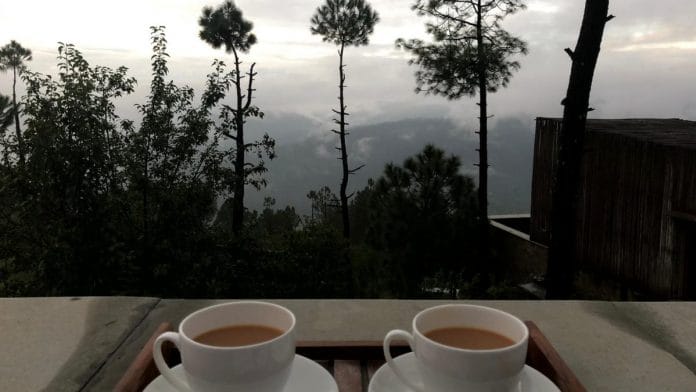



As always in terms of crisis nobody thinks about long term but short term only.Once the vaccine is tested and seems positive we will all get back to our normal state.It is a short term pain but beneficial for all of us.
Tourism post COVID -19 sees a small lamp engulfed in the long Covid Tunnel amidst – Quarantine, host of checks and certifications, tests, chasing doctors for tests and certificates, reading up dozens of state and district directives, filling a million forms and self-declare, self-declare, and being prepared to self-declare all along the way, Readying the e-passes to produce at checkpoints, facing maze-like bureaucracy you have to overcome at every step, a laborious process to procure travel passes, and requirements for Covid-negative certificates, sporadic lock downs here and there etc. making the Travel business, Tourism and Hotel business of Airbnb and others prone to gradual Extinction. One definitely cannot rely on any kind of Atmanirbhar apps for this.